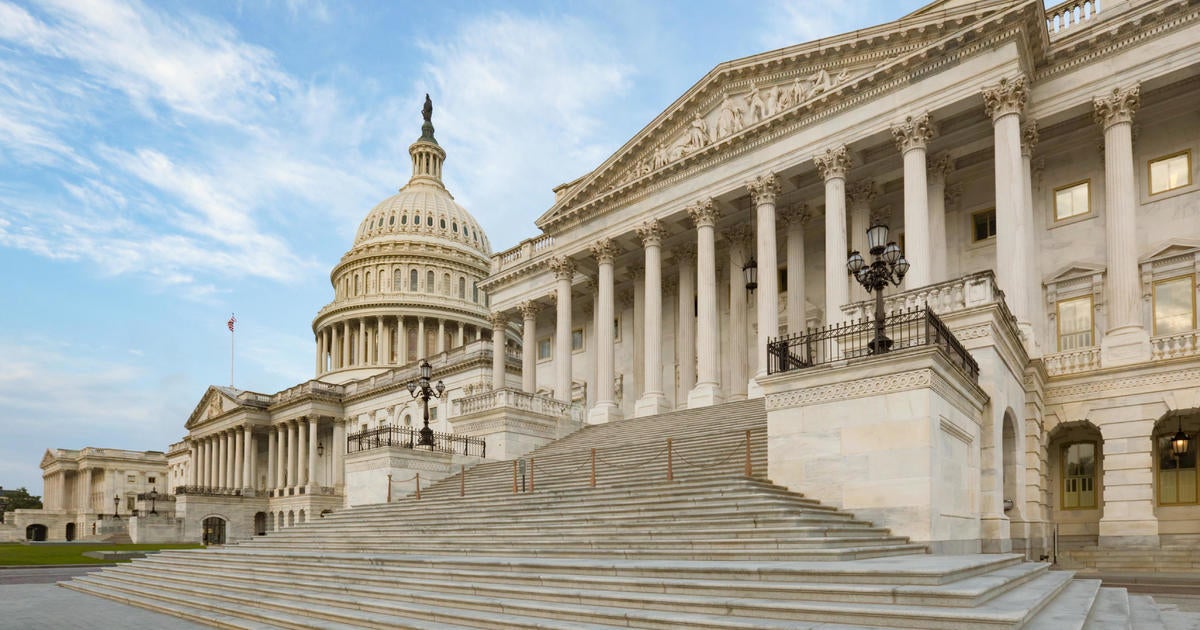Legislation to expand Social Security benefits to millions of Americans has made significant progress in the U.S. Senate this week, overcoming two procedural hurdles and moving closer to potential passage on Friday. With time running out in the current session of Congress, the pressure is on to finalize this important piece of legislation.
On Wednesday, Senators voted 73-27 to approve a motion to advance the Social Security Fairness Act, followed by a 73-23 vote on Thursday to proceed to the bill. Both votes surpassed the 60-vote filibuster threshold, paving the way for a final passage with a simple majority in the Senate. The bill would then be sent to President Biden for approval.
Vice President-elect JD Vance of Ohio, along with 24 Republican senators, joined 49 Democrats in advancing the measure on Wednesday. However, Vance, along with Marco Rubio of Florida, Shelley Moore Capito of West Virginia, and Joe Manchin, an independent from West Virginia, did not participate in Thursday’s vote.
The Senate is set to reconvene on Friday, where they are expected to resume consideration of the bill after addressing votes related to confirming two judges in California. Senate Majority Leader Chuck Schumer expressed his commitment to bringing the Social Security Fairness Act to a full vote, emphasizing the importance of repealing policies that negatively impact retirees who have dedicated their careers to public service.
The New York Democrat has been a vocal advocate for the bill, highlighting the need to eliminate federal policies that diminish the benefits of individuals who have worked as teachers, firefighters, postal workers, and other public sector employees. Schumer’s efforts have been supported by a bipartisan group of senators who recognize the significance of ensuring that retirees receive the benefits they have earned.
Ohio Senator Sherrod Brown, a Democrat who has been a strong proponent of the Social Security Fairness Act, emphasized the importance of upholding the integrity of Social Security as a crucial pillar of the middle class. He noted that individuals who have contributed to the system for decades deserve to receive their full benefits upon retirement.
On the other hand, Republican Senator Bill Cassidy of Louisiana shared a poignant story of a retired teacher who was dismayed by the reduction in her Social Security spousal benefits, highlighting the real-world impact of these policies. However, Senator Thom Tillis cautioned against the potential financial implications of the bill, raising concerns about the increase in the federal deficit that could result from its passage.
The Social Security Fairness Act aims to address long-standing issues related to the Windfall Elimination Provision (WEP) and the Government Pension Offset (GPO), which have significantly reduced payments for nearly 3 million retirees. These policies have disproportionately affected individuals who receive pensions from state and federal jobs that are not covered by Social Security, including teachers, police officers, and postal workers.
In addition to repealing these harmful provisions, the bill also seeks to eliminate a second provision that diminishes Social Security benefits for the surviving spouses and family members of affected workers. The impact of these policies on retirees has been substantial, with approximately 2 million beneficiaries affected by the WEP and nearly 800,000 retirees impacted by the GPO.
Despite the bipartisan support for the bill, some Republican lawmakers have expressed reservations about its cost implications. According to the Congressional Budget Office, the proposed legislation could add an estimated $195 billion to federal deficits over a decade, prompting concerns about the long-term financial sustainability of Social Security.
Senator Mike Braun of Indiana, who had previously supported similar legislation, indicated that he was still deliberating on whether to vote for the bill due to its potential impact on the national debt. While concerns about the financial ramifications of the bill have been raised, bipartisan cooperation remains crucial in addressing the systemic inequities within the Social Security system.
Incoming Republican leader John Thune emphasized the need to balance the immediate benefits of the bill with long-term considerations about the solvency of Social Security. Thune, who represents South Dakota, opposed the motion to proceed on Wednesday, underscoring the complex nature of the debate surrounding the Social Security Fairness Act.
If the bill fails to secure Senate approval before the end of the current session of Congress, it will need to be reintroduced in the next Congress, prolonging the legislative process and delaying much-needed reforms to the Social Security system. The fate of millions of retirees hangs in the balance as lawmakers grapple with the challenges of ensuring financial security for all Americans in their retirement years.
As the Senate prepares to finalize its deliberations on the Social Security Fairness Act, the outcome of this crucial legislation will have far-reaching implications for retirees across the country. With bipartisan support and a shared commitment to upholding the principles of fairness and equity, lawmakers have an opportunity to enact meaningful reforms that will benefit millions of Americans who have dedicated their lives to public service.









